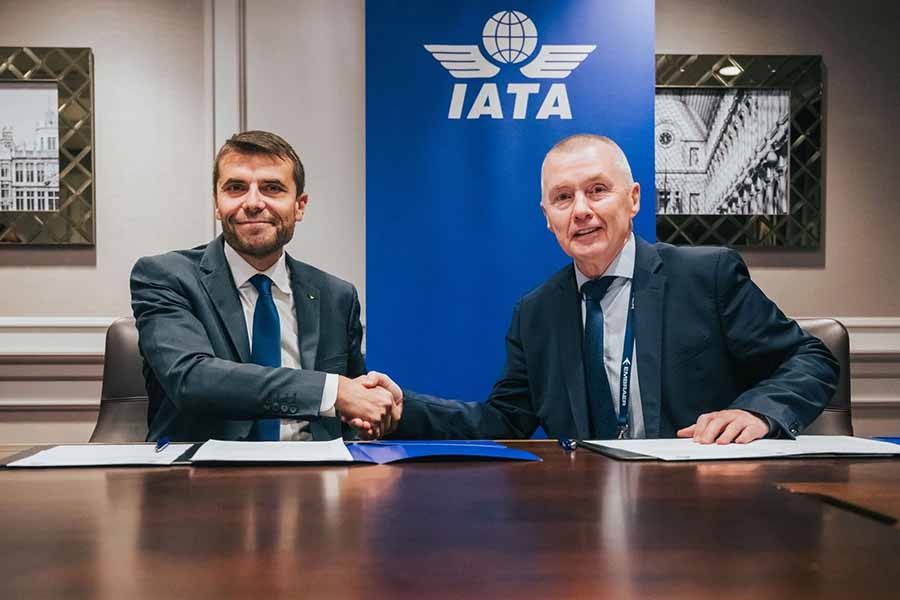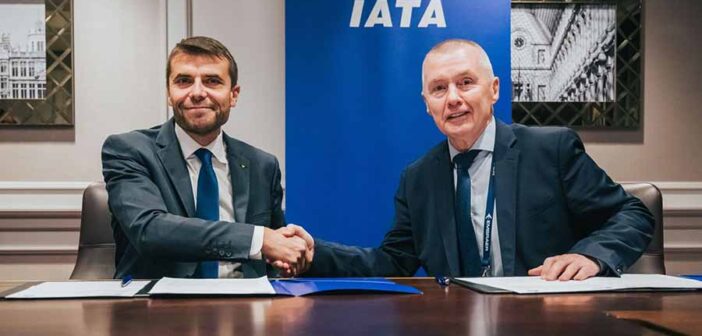
EASA and IATA have signed a Memorandum of Understanding in Brussels.
The agreement explored synergies between EU Flight Emissions Label and IATA CO2 Connect. Airlines joined the label voluntarily under Regulation (EU) 2023/2405. The partnership streamlined emissions data processes for passengers.
The signing occurred at IATA Wings of Change Europe. The International Air Transport Association concluded the conference after two days of discussions in Brussels on aviation competitiveness, connectivity and sustainable growth.
Delegates from airlines, regulators and industry groups addressed taxation, operations, sustainability, data management, digitalisation and innovation through keynotes, panels and interviews.
IATA Director General Willie Walsh opened the event with a call for European policymakers to implement measures that support the sector’s contribution to economic and social connectivity. The conference agenda included sessions on industry outlooks and fireside chats with leaders from the aviation ecosystem.
A memorandum of understanding signed between IATA and the European Union Aviation Safety Agency focused on synergies between the EU Flight Emissions Label and IATA’s EcoHub and CO2 Connect tools. The agreement aims to provide passengers with consistent CO2 emissions data at the time of booking flights. It seeks to align processes for label issuance, reduce administrative burdens and ensure cost-effective participation for airlines. EASA Executive Director Florian Guillermet stated that the partnership simplifies airline involvement in the label, while Walsh noted it meets regulatory and customer requirements for transparency.
Separately, IATA criticised proposed reforms to EU Regulation 261, which governs passenger rights for delays and cancellations. The association argued that additions from the European Parliament, such as requirements for free cabin baggage, increase costs for all passengers and airlines without resolving core issues. IATA supported the European Council’s position, which raised delay compensation thresholds to four hours for short-haul flights and six hours for long-haul, to align with preferences for lower fares. A survey cited by the association found that 72 per cent of passengers favour reduced base prices over included extras, with less than one per cent of flights delayed beyond three hours. Walsh described the Parliament’s changes as a reverse Robin Hood approach and urged retention of the Council’s balanced reforms to maintain competitiveness.
Speakers at the conference reiterated calls for revival of the Single European Sky initiative, which could reduce emissions by 10 per cent through improved air traffic management. IATA also pressed for reforms to the ReFuelEU Aviation and Emissions Trading System frameworks to incentivise sustainable aviation fuel uptake without imposing penalties. The association highlighted slow regional growth rates, such as 2.2 per cent annual increase in France and 0.4 per cent in Germany from 2014 to 2024, and advocated removal of passenger taxes, citing Sweden’s recent abolition as a model.
Over 500 participants attended, with sessions streamed for broader access.
Florian Guillermet shared “This partnership with IATA, the world’s largest airlines’ association, will make it easier for airlines to join the Flight Emissions Label” Willie Walsh shared “Providing accurate emissions data is crucial for informed decision-making and for maintaining confidence in the sustainability of air transport”




